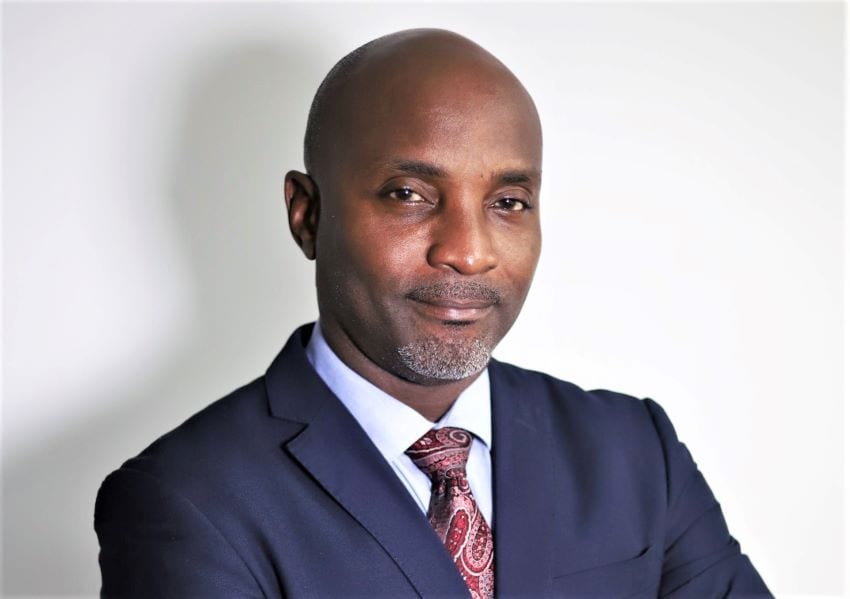Secretary General of the Caribbean Telecommunications Union (CTU), Rodney Taylor, has commended the Barbados Government for embarking on its Public Sector Modernisation Programme but stated there is still a lot more work to be done.
He was speaking at the opening of the Digital Summit and ICT Week 2023 yesterday, at the Accra Beach Resort and Spa, Rockley, Christ Church. It is being held under the theme “Embracing a Digital Caribbean: Opportunities for Growth and Innovation”.
Mr. Taylor, who worked with the Ministry of Innovation, Science and Smart Technology, now the Ministry of Industry, Innovation, Science and Technology (MIST), prior to taking up the role as Secretary General of the CTU, said there were a number of challenges Caribbean countries face when embarking on digitally transforming their public sectors. One of them was financial constraints.
“[When] I worked with MIST, I was constantly banging my head against the wall because we simply could not afford to fill many of the vacancies that I felt were critical to the successful implementation of the Government’s ICT strategy,” he stated, adding that keeping up to date with the latest developments was not only challenging but also critical for ensuring that government services remained efficient, secure, and accessible to all citizens.
The CTU Secretary General said another significant challenge was that of cyber security. He explained that as governments digitised their operations, they became “prime targets for cyberattacks”. Mr. Taylor pointed out that the volume and sophistication of such attacks were a major concern for digital leaders in the public sector.
“The consequences of a successful breach can range from the theft of sensitive citizen data to disruption of essential services, potentially endangering public safety. As cyber experts will tell you, it’s not a question of ‘if’ but a question of ‘when’ your systems will be breached and what is your state of readiness to respond.
“Data privacy is yet another major challenge. As governments collect and store vast amounts of personal information, they must navigate a delicate balance between using this data to improve services and protecting citizens’ privacy. You must ensure that data is collected, managed, and used in a way that respects individual privacy rights,” he underscored.
Another area of concern was the digital divide which exists among citizens. Everyone does not have equal access to the digital tools and services offered by the public sector, Mr. Taylor noted. He said bridging this chasm was not just an issue of equity but also a matter of inclusivity.
He believes government leaders must work to ensure that their digital services are accessible to all citizens, regardless of their socioeconomic status or technological proficiency. This, he said, required investment in digital infrastructure, digital literacy programmes, and strategies to make public services available on multiple platforms.
He lauded the inclusion of a digital workshop for persons living with disabilities which will take place at the Derrick Smith School & Vocational Centre on Friday, October 20, as part of activities for ICT Week.
“Very recently, the CTU signed an MOU with the Universal Postal Union aimed at fostering greater collaboration between digital and postal services because post offices can play a key role as service bureaus, one stop shops as it were, for public services. One of the projects I was very pleased to have worked on is the online renewal of the Barbados Driver’s Licence and the partnership with the Barbados Postal Service to deliver those licences to the homes and offices of Barbadians. It was a big hit,” he shared.
One of the more difficult challenges to modernising the public sector, Mr. Taylor explained, was changing the culture and workforce. He said that “transforming a traditionally bureaucratic and risk-averse government into a more agile and innovative digital entity is no small feat”.
He noted that it required the adoption of new technologies and a cultural shift, adding that public sector leaders needed to inspire their workforce to embrace change and innovation as well as adapt to new technologies. This may require retraining employees and promoting a culture of experimentation and learning, he suggested.
The Digital Summit and ICT Week 2023 runs from October 16 to 20. ICT ministers and technocrats from Barbados and the region will seek to implement digital solutions and enhance their digital infrastructure landscape with a view to improving business facilitation and offering better and more efficient services to their publics. It is envisaged that from the discussions, workable solutions will be generated and possible joint projects will be identified.








